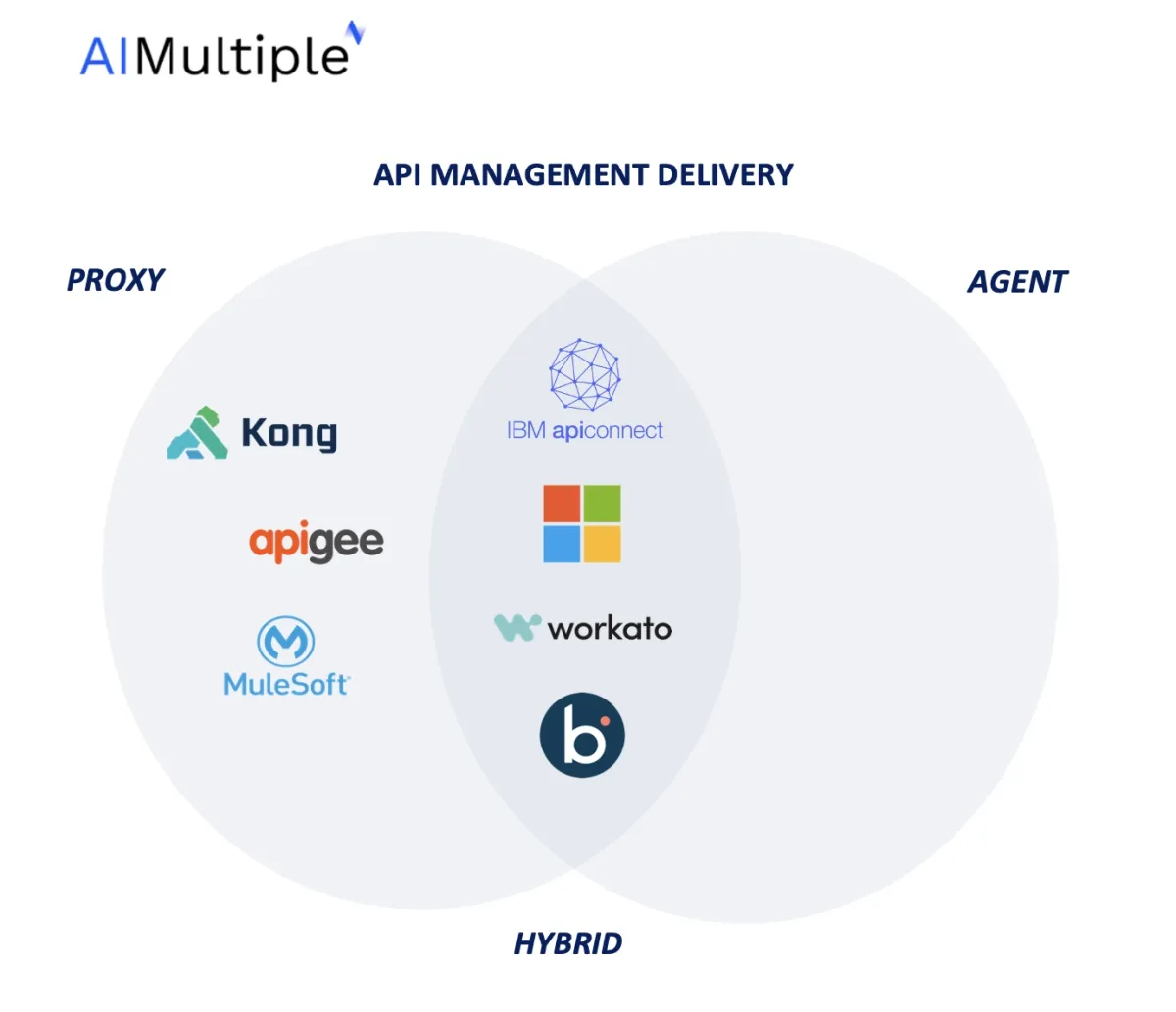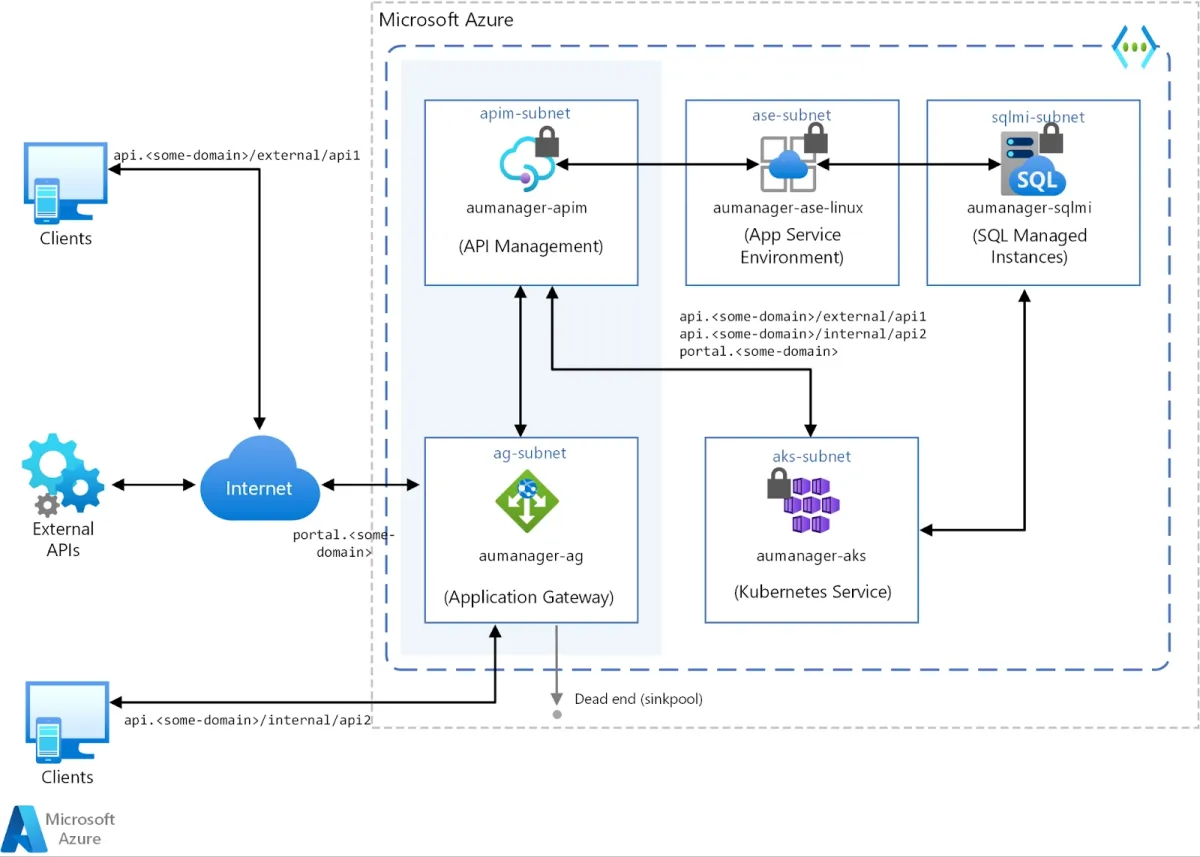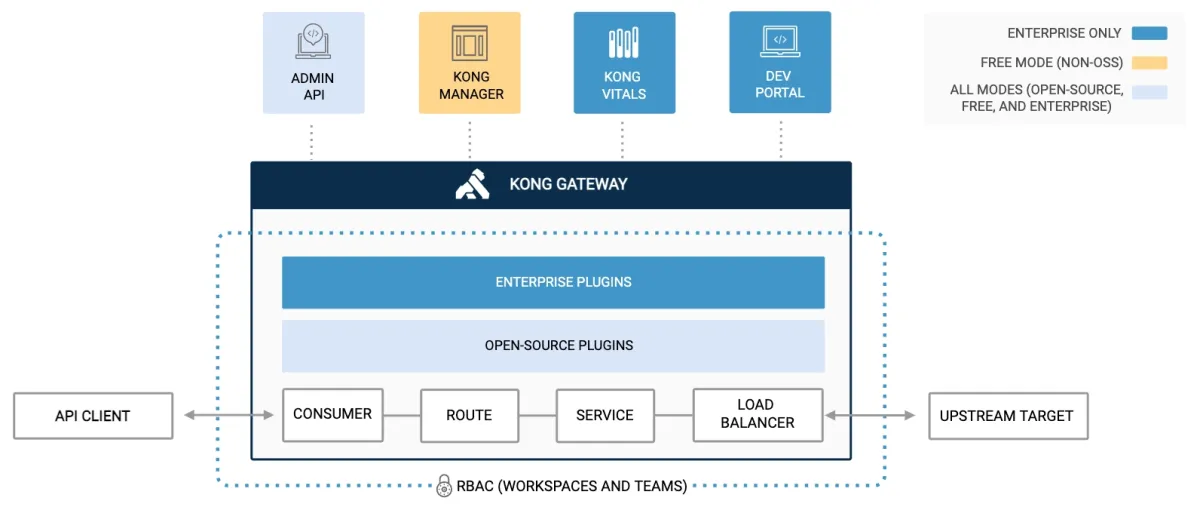We present the top API Management tools based on their popularity, system deliveries, and features. Follow the links on them to see our rationale.
- IBM API Connect
- Apigee API Management
- Microsoft Azure API Management
- Kong API Management
- MuleSoft Anypoint Platform
- Workato
- Dell Boomi

Our analysis of API management platforms initially found two types of API Management system deliveries. However, we see that a considerable amount of API Management solutions aim to offer both services, we can list them as:
- Proxy
- Agent
- Hybrid (Offering both proxy and agent services)
API Management as a proxy
API Management services as a proxy prevent the back end of services from going down due to a high volume of queries. The proxy-based system is installed at the enterprise’s perimeter; it handles proxy calls forwarded to API servers using proxy-level policies rather than API-level ones. Security and traffic monitoring are the prominent features of proxy delivery.
API Management service as an agent
API Management service as an agent is situated in the enterprise network. They can be considered as plug-ins integrated with the server. This delivery type exposes APIs in a regulated manner through the use of a security gateway. Afterward, the entity that can be referred to as an “agent” provided by the platform applies the API policies to the API servers.
While there is no definitive indicator that can allow us to confirm one type is better than the other, each API management delivery type may be better suited to the specific needs of a business.
The purpose of this article is to determine the best API management tools that can benefit API providers and users. Thus, we introduce the Top 7 API management tools with their capabilities to close the information gap. The order of the list is not correlated to the performance of the tools.
1.IBM API Connect
IBM API Connect is an API management solution that allows businesses to adopt an API strategy by strengthening the backbone of the API ecosystem. As API Connect can be used across multiple clouds, it boosts the digital transformation of businesses. It fits to the hybrid type of API Management delivery. API Connect provides the following features:
- API Manager: It manages APIs for both internal and external use. It can monetize and manage services such as REST or SOAP APIs.
- IBM® DataPower® API Gateway: IBM gateway helps secure and control API traffic and interactions, maintaining performance during the process.
- Developer Portal: It allows the users to share APIs with app developers through a company-branded portal.
- API Analytics dashboard: Offers a variety of dashboards and visualization to establish the business value of API usage.
IBM API Connect maintains the API life cycle by creating, running, managing, and securing APIs (See Figure 1).
2.Apigee API Management
Apigee API management is a platform for managing and developing APIs. It provides an abstraction of backend service APIs while maintaining rate limiting, quotas, analytics and providing security, it fits to the proxy type of API Management delivery.
Apigee API management offers the following features;
- Manage traffic with APIs: A fully managed API gateway, it allows building APIs to unlock data from applications, systems, and services.
- Mitigating security threats: Apigee offers Advanced API Security
3. Microsoft Azure API Management
Microsoft Azure API management platform enables the user to manage all APIs from one place. It’s a hybrid, multi-cloud management platform suitable for multiple environments. It fits to hybrid type of API Management delivery. Microsoft Azure API management offers the following features:
- Manage APIs across multiple platforms: Users can deploy API gateways with APIs managed in Azure, clouds, and on-premises. Azure API management contributes to API traffic flow while unifying external and internal APIs by providing observability.
- API-first approach: Help accelerate business by allowing the creation of developer portals and publishing API.
- Customization and discoverability: Users can create a customizable portal for APIs to be easily managed and share them with internal and external teams
You can see how the Azure API Management functions with Application Gateway, External APIs and SQL Managed Instances in the Figure 2 below.
Figure 2: Microsoft Azure API management

Source: Microsoft.1
4.Kong API Management
Kong API management service provides solutions to organizations such as Paypal, Papa Johns, and Yahoo!2 The API management is built on Kong Gateway. It aims to modernize legacy applications and accelerate time to market with enterprise plug-ins, developer portals, analytics, and security. It fits the proxy type of API Management delivery. Kong API Management provides the following features:
- Developer productivity. Kong API management provides APIs to internal and external teams through a customizable developer portal. It eases developer onboarding with Role-Based Access Control (RBAC). Kong API management removes manual coding tasks by utilizing CI/CD pipelines.
- Simplifying management. Kong API management can be implemented with existing legacy or emerging technologies. Kong Manager interface provides a simplistic approach by allowing users to do simple one-click operations.
- Simplifying API Security. Kong enterprise has a FIPS 140-2 compliant gateway, which is ideal for highly regulated industries and their mission-critical security applications
You can see the RBAC, Kong Manager, and which components are included in which plan in Figure 3 below.
Figure 3: Kong Gateway

Source: Kong Docs3
5.MuleSoft Anypoint Platform
MuleSoft’s Anypoint is an API management platform that allows users to manage and secure APIs. It is suitable for any API, regardless of its architecture or environment. MuleSoft provides services to industry leaders such as Coca-Cola, Airbus, AT&T, Unilever, and Netflix.4 It fits to proxy type of API Management delivery. Anypoint Platform has the following features:
- Accelerating application delivery. By using CI/CD pipelines or Git repositories, the user can automatically discover APIs and their relevant documentation with Anypoint.
- Scalability and modern architectures. MuleSoft’s flexible gateway allows the management of any service regardless of size or type.
6. Workato
Workato’s API platform allows businesses to manage their APIs and automate workflows while maintaining security and governance. Workato is codeless, meaning that there is no coding required. It fits to hybrid type of API Management delivery. Its API management platform is full-lifecycle with the following features:
- Access Policies. The user can set restrictions on the usage of an API.
- API Collections. API Collections are used to arrange endpoints. API Collection is a group of endpoints that may be controlled collectively.
- Dashboard. API platform dashboard allows users to monitor the performance of the API platform or a specific endpoint collection.
- Discoverable APIs. The platform has a library catalog of APIs that are discoverable by users in an organization.
See Workato’s API Platform video for detailed information about their product.
7. Dell Boomi
Boomi offers an API management platform that is low-code and cloud-native. It supports the full lifecycle of APIs in a hybrid environment. It allows users to configure APIs and integrate them easily.
The users can manage and monitor the function of APIs via dashboards, catalogs, and developer portals. Companies such as Lavazza, Markas, and McCarhy use Boomi services.5 It fits the hybrid type of API Management delivery. The platform has the following features:
- Govern data access. The platform allows the user to restrict access to data. It helps establish secure API deployments.
- Real-time engagement. The platform enables third-party access to APIs, increasing their productivity in the API ecosystem.
- Centralized lifecycle management. Boomi has a centralized approach to API lifecycle management where the user enjoys visibility of their APIs while managing and administering web services.
If you need more information concerning API management tools you can reach us:
External Links
- 1. Microsoft. Azure API Architecture. https://learn.microsoft.com/en-us/azure/architecture/reference-architectures/apis/protect-apis
- 2. Kong API Gateway. https://konghq.com/products/api-gateway-platform
- 3. Kong Docs.https://docs.konghq.com/gateway/latest/
- 4. MuleSoft API Management. https://www.mulesoft.com/platform/api-management
- 5. Boomi Customers.https://boomi.com/customers/

Comments
Your email address will not be published. All fields are required.